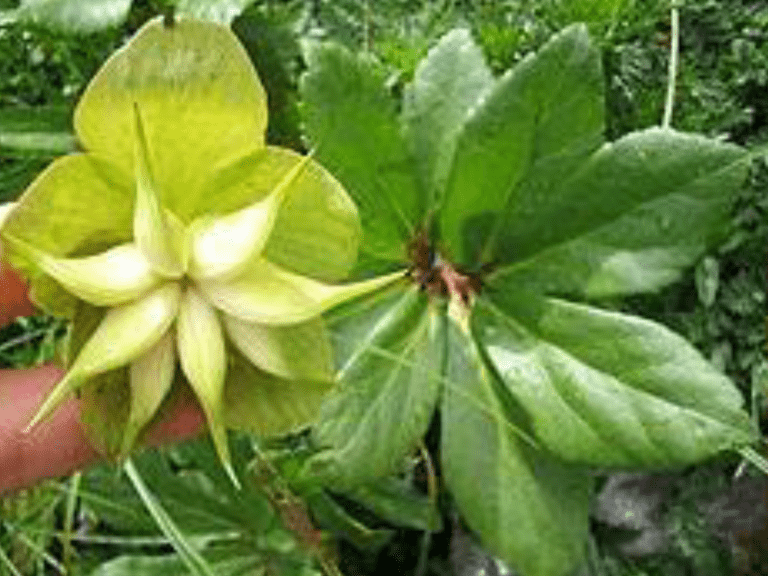
De kerstroos is een vaste plant van ongeveer 30 cm hoogte. De
wintergroene; handvormige bladeren hebben zeven tot negen donkergroene,
leerachtige blaadjes, die een paar tanden hebben in hun bovenste helft. De
nieuwe bladeren verschijnen samen met de bloemstengels.
De plant bloeit met één of een paar witte of roze bloemen. De bloemen
verkleuren naar roze na de bevruchting. Na de bloei verschijnt de vrucht, die
uit een paar kokervruchten bestaat.
De kerstroos komt in het wild voor op de hellingen van de Oostelijke Noorden Zuidalpen.
De ondersoort Helleborus niger subsp. macranthus, die men aantreft in de
Julische Alpen (noordoosten van Italië en aangrenzende streek van
Slovenië), heeft minder getande bladeren, die soms een metaalglans
hebben, en grotere bloemen (doorsnede tot 9 cm).
[bewerken] Giftigheid
De kerstroos werd beschouwd als zeer giftig door helleborine, een
diglycoside dat bitter smaakt. Bij onderzoek in de jaren 70 bleek helleborine
echter niet aanwezig in de wortels van H niger[1]. Verdere aanwezige
gifstoffen zijn saponine en protoanemonine.
Medicinale toepassingen
De gemalen en gedroogde wortels werden vroeger als niespoeder gebruikt.
Verder werd de kerstroos als braakmiddel en middel tegen obstipatie
gebruikt.
• Mythologie
• In de mythologie van de Oude Grieken werd
Helleborus door Melampus van Pylos gebruikt
voor het redden van de dochters van koning
Argus, die gek gemaakt door Dionysus naakt,
huilend en schreeuwend door de straten van de
stad renden
Sankaran The main feeling of the
Helleborus person is that the
outside is so painful,
unpleasant, horrifying and
shocking that he completely
shuts himself from the outside
world. He remains completely
absorbed. He does not see,
even if his eyesight is clear.
He can't hear though his ears
are intact. He is completely
indifferent to both pleasure
and pain. He takes a lot of
time before answering a
question. But in my
experience such
manifestations represent an
extreme stage which may be
seen in conditions like
encephalitis.
Sankaran:
In normal circumstances,
Helleborus persons live with a
tremendous dullness; nothing
interests them anymore. They
cannot register things in a
normal conversation; when
they read, it does not register.
MM:
M - STUPOR; INDIFFERENCE;
involuntary sighing.
Sankaran
One of the "Ailments from" of Helleborus is
"head injury". Here it compares with Arnica.
• Answers, confusedly
as though thinking of
something else [2],
reflects long [3],
repeats the question
first [1].
Concentration, difficult, studying, reading,
while [3]. Delusions, doomed, being [1],
new, everything is [2], wrong, fancies he
has done [2]. Dullness, afternoon [2]. Fear,
imaginary things [2]. Indifference, external
impressions, to [2], external things, to [2],
loved ones, to [3], relations, to [3],
suffering, to [3]. Memory, weakness of,
heard, for what has [3], said, for what has
[3], say, for what is about to [3]. Sadness,
girls, before puberty [2]. Slowness [3].
Sympathy agg. [1/7].
Vertigo
M - SLOW and FORGETFUL. DULL; sensation as if
head is empty.
• M - amel. Strong
concentration:
"Thinking of
complaints AMEL.";
"Muscles refuse to
obey the will when
attention is turned
away"; "Staggering
when walking
inattentively";
awkward, drops
things; has to
CONCENTRATE on
EVERYTHING HE
DOES.
M - Feeling of HELPLESSNESS; "Please help me".
• Hell: LEEG, het zit er niet
• Alum: Traag, komt er niet bij












